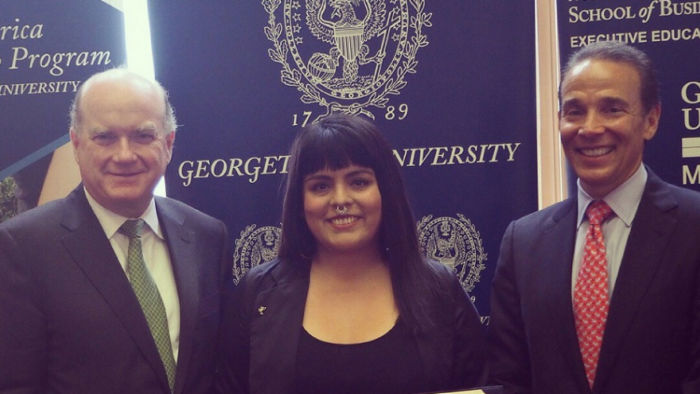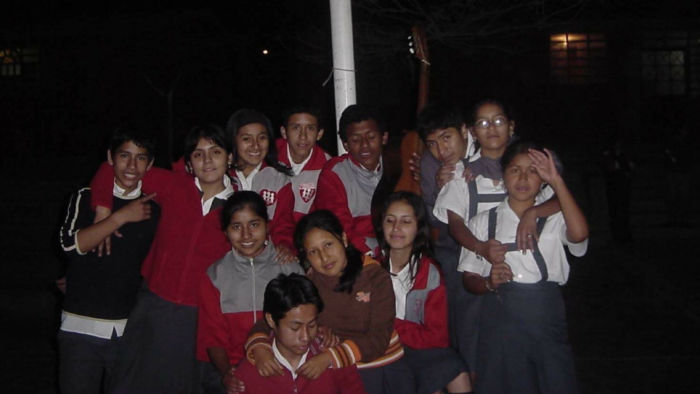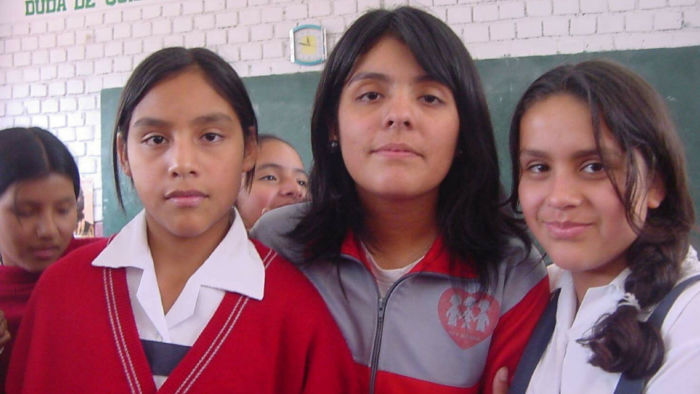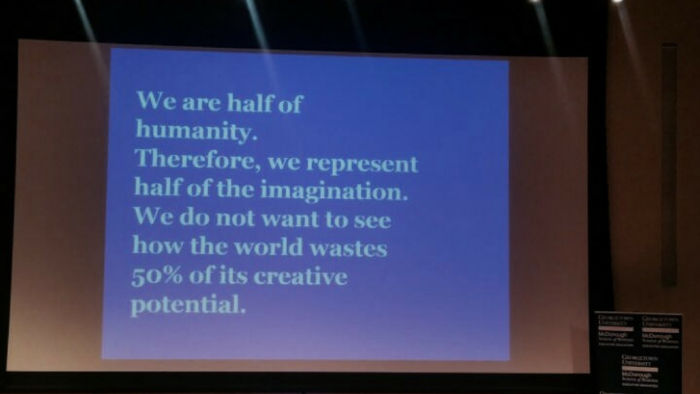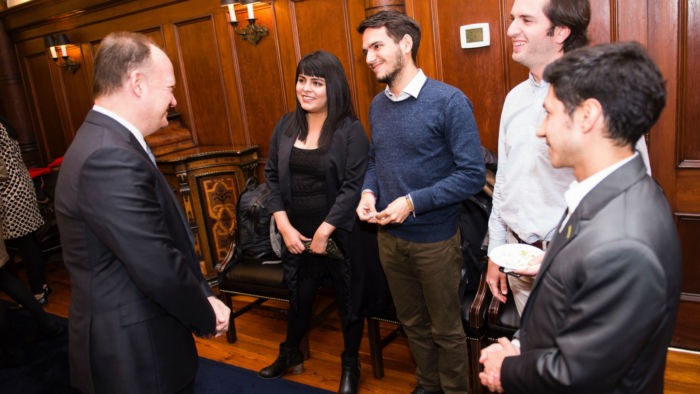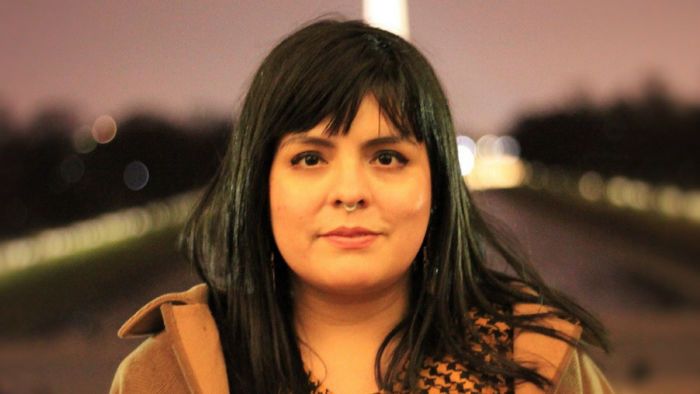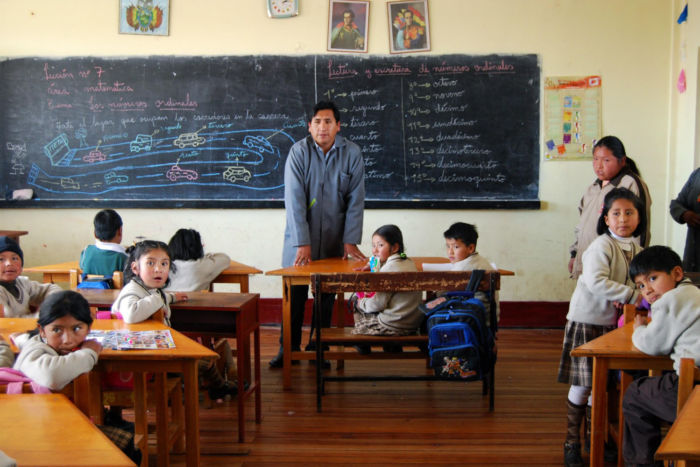
It was 2001 when, after countless meetings and conversations between the Maryland and Bolivian Provinces of the Society of Jesus, a partnership between Saint Joseph’s University (SJU) and Fe y Alegría Bolivia began.
SJU, Philadelphia’s Jesuit Catholic University, through its Faith-Justice Institute, found in Fe y Alegría Bolivia the perfect partner to catalyze their efforts to reflect on the key role education plays in society and to promote social analysis and critical thought around faith and justice issues through different initiatives.
The partnership initially started with an objective of exchanging educational experiences through an immersion program for SJU faculty members who would travel to Bolivia to reflect on the importance of education, Fe y Alegría’s educational model as tools for development and, above all, to consolidate the bonds of friendship between Bolivian and American people. Since that time, however, the program has grown further with the offering of training and research, fundraising initiatives and other organic collaborations.
The training and research program between SJU and Fe y Alegría Bolivia has evolved over the years strengthening their mutually beneficial partnership. For Ann Marie Jursca Keffer, Director of SJU’s Faith-Justice Institute, Fe y Alegría Bolivia provides “an outstanding example of how social problems like global education and the right to quality and inclusive education for everyone can be addressed. Together through community-based research, workshops or immersions, our partnership models person-centered engagement with a shared Ignatian mission.”
A prime example of this partnership is the undergraduate Data Mining and Analysis course, run by SJU Assistant Professor Kathleen Garwood, where faculty members and students have been working alongside with Fe y Alegría Bolivia’s Education Advisor, Miguel Ángel Marca, since 2015 to identify the poorest 15% of students in any given population by analyzing survey responses with the end goal of increased retention rates among Fe y Alegría Bolivia students. SJU students learn about the day-to-day circumstances of Bolivian students, such as access to running water, that affect student participation in Bolivia, while integrating their academic knowledge. Through the work of Fe y Alegría Bolivia and SJU, students see a personalized story of social inequity. As Kiersten, a SJU student says, “Data only tells so much of the story. Once you meet individuals and experience their lifestyle you cannot view the data the same way. Insights from this data could be used to alleviate some basic needs of children and families in the area. I believe that education is one pathway to break the cycle of injustice or poverty. By identifying students to target and programs to implement, students may be able to focus more on their education and ultimately have more of a fighting chance in this world.”
Two other examples of this increasingly diverse relationship between SJU and Fe y Alegría Bolivia are a Food Marketing course and a Religious Studies course.
The Food Marketing course is a new elective class run by SJU’s Assistant Professor Sean Coary, which sought to help the Feeding Futures Full of Hope project. A newly launched program, the Feeding Futures Full of Hope project aims to benefit the Casas del Saber (Houses of Knowledge, in English) boarding schools in Potosí and Chuquisaca by allowing them to create horticultural gardens to help feed their students. This was accomplished by creating a social media fundraising campaign and platform for Fe y Alegría Bolivia’s program. “We wanted to present students to the global issue around other countries’ food scarcity and raise funds and awareness”, comments Prof. Coary. Both the course and the campaign were a success. Not only were they able to raise $1,000 for Fe y Alegría Bolivia’s program, but SJU aslo saw first-hand the positive effects the course had on their students.
According to Prof. Coary, “many of our students were shocked when they found out that many children in Bolivia don’t have direct access to three meals a day or that they can only go to class two weeks at a time … They also had a sense of pride and satisfaction with the results of the program, as they felt they had given them the tools for accessing sustainable food. Many of our students are well-off, but we also have students that have scholarships and I believe they were the ones that could relate to these issues the most and they put the most effort in class as they had first-hand experience in these situations”.
Similarly, for Prof. Sean Coary this course really emphasized the need to balance theoretical knowledge with real world application. “We wanted to use marketing for small local projects and find a project that had a great effect. We found the ‘magis’ through Fe y Alegría Bolivia.”
The Religious Studies course, which includes a student immersion trip to Bolivia, came to exist after SJU’s Associate Dean, Dr. Shawn Krahmer, had witnessed the harsh realities children in Bolivia –and Latin America- face. “[Back in 2007], I visited a school where the entire student body, as well as all of the teachers, were learning sign language to enable the 3-4 deaf students to learn among them. I learned about the added value dimensions of a Fe y Alegría education, how much parents and kids wanted to be able to attend Fe y Alegría schools. I saw incredible things being done by a diverse Fe y Alegría staff with very few resources”, says Dr. Krahmer.
With this image in her head, and mixed feelings about what she had experienced, she first volunteered to teach a class in Bolivia, and later decided to take her Ethics Intensive students to the country in 2008, and then again in 2011. After a change in the curriculum at SJU, but eager to continue the relationship with Fe y Alegría and the immersion program, Dr. Krahmer developed the syllabus for the Religious Studies course, designed to meet the requirements of several curricular categories. Her objectives for her immersion program students are “that they learn to ‘see’ with new eyes. That they recognize their own privilege. That they learn not to take their educational opportunities for granted. That they become more sensitive to poverty and the interconnections between their own lives and choices and those of the Bolivian people.” For Elaine, a SJU student, both the course and the immersion trip gave her “a first-hand appreciation for how education operates and expands in developing countries. A quote that kept running through my mind during our trip, and still does to this day, was ‘the grass is not always greener on the other side; it is green where you water it.’ In comparison to the characteristics of schools in the United States, the schools in Bolivia are equipped with far less in the realm of physical resources. However, their intrinsic will to seek success was something that is lacking in the American education system”.
Over the years, SJU has also organized fundraising initiatives to benefit Fe y Alegría Bolivia, such as the facilitation of US-based financial networking opportunities arranged by SJU alumni; ongoing in-kind donations of laptop computers, school supplies, and solar powered flashlights; a yearly financial donation drive and a Christmas card sale. Additionally, SJU has also provided media services (two-part video reflections from those who have travel to Bolivia and vice versa).
Fe y Alegría Bolivia staff also attest of the value of their partnership with SJU, Carmiña De La Cruz Aliaga, National Coordinator of Special Education and Inclusion at Fe y Alegría Bolivia, asserts that “Fe y Alegría benefits from having a sister institution, with which it shares an institutional mission and an educational purpose, which undoubtedly enriches our work. Although each institution responds to different realities and needs, it motivates us to look for new approaches and to address educational challenges. In these exchanges, we believe that we influence the social and diverse outlook with which Fe y Alegría Bolivia works daily in its educational centers, and this enriches the intercultural experience lived by the different SJU delegations”.
With the relationship closely approaching its 18-year mark, both SJU and Fe y Alegría Bolivia staff testify to the positiveness of this partnership and the transformation of SJU students and Fe y Alegría Bolivia communities, and share the belief that inclusive and quality education –in the north and south of the Americas- will enable us to create a more just world.
